Happy Tuesday! We hope you all had a relaxing long weekend and enjoyed Labor Day! We at TMD spent too much time digitally window-shopping at perhaps the coolest store around, Rive Droite, a shop where Yves Saint Laurent creative director Anthony Vaccarello curates a bunch of things he likes and features some unusual, expensive YSL collaborations. Our wish list includes the $1,250 leopard print bath towel, $2,700 Schott x Saint Laurent varsity jacket, $8,500 blue and gold Saint Laurent surfboard, $1,650 YSL longboard, and “blood filled” $258 vinyl of John Carpenter’s soundtracks.
Quick Hits: Today’s Top Stories
- The U.S. Court of Appeals for the Federal Circuit ruled 7-4 on Friday that President Donald Trump’s “reciprocal tariffs” announced on April 2 (and the duty levies on Canada, China, and Mexico) overstep the bounds of presidential power. The tariffs were enacted through emergency authority under the International Emergency Economic Powers Act (IEEPA), which allows the president to “regulate” international trade under a declared national emergency. Trump cited negative trade deficits with foreign nations and the illicit fentanyl entering the U.S. from Canada, China, and Mexico as emergencies justifying the import duties. Yet, as the court’s majority wrote in its ruling, “we conclude Congress, in enacting IEEPA, did not give the President wide-ranging authority to impose tariffs of the nature of the Trafficking and Reciprocal Tariffs simply by the use of the term ‘regulate . . . importation.’” The court’s order permits the tariffs to remain in effect through October 14, providing time for the White House to appeal the ruling.
- Israel confirmed on Saturday that it killed the prime minister of the Houthi terrorist government, Ahmed Ghaleb al-Rahawi, along with several other high-ranking officials in the Iran-backed, Yemen-based rebel group, in a Thursday airstrike in Sanaa, the capital city of Yemen. Muhammad Ahmed Miftah, the Houthis’ deputy prime minister who has managed much of the terror group’s governing duties, succeeded al-Rahawi as the terror group’s new prime minister. In response to the attack, Houthi rebels on Sunday stormed two UN offices—for the World Food Programme and the UN Children's Fund—and took at least 11 UN employees prisoner. UN Secretary-General António Guterres called for their “immediate and unconditional release,” adding that they were “arbitrarily detained.”
- Israel also confirmed on Sunday the death of Hamas’ military spokesman, Abu Obaida—identified by Israel Defense Forces (IDF) as Hudayfa al-Kahlout—following an air strike one day earlier in Gaza. Hamas has yet to provide public comment in response to Israel’s report. On Friday, Obaida warned that remains of deceased Israeli hostages would “disappear forever,” if a planned assault on Gaza City went forward. The IDF said he was responsible for distributing videos of surviving Israeli hostages trapped in Hamas’ underground tunnels and of the terror group’s October 7, 2023, massacre of Israeli civilians. The IDF added that Israel’s Shin Bet intelligence agency had, prior to the air strike, identified the hideout location of Obaida. On Friday, the IDF said it recovered remains of two deceased Israeli hostages, Ilan Weiss and Idan Shtivi, who were kidnapped from Israel in the October 7 attacks and held in Gaza.
- Overnight Saturday, Russia conducted a large aerial attack targeting several Ukrainian cities and regions, killing one civilian in the country’s southeast Zaporizhzhia region, where at least 29 others, including three children, were also injured. Russia’s military deployed 537 drones and 45 missiles, per Ukrainian authorities, and struck houses, apartment buildings, and business centers, among other civilian infrastructure. Earlier that day, the former chairman of Ukraine’s legislature, Andriy Parubiy, was assassinated in the western Ukrainian city of Lviv. According to unverified footage obtained by the BBC, the gunman appears to have been disguised as a courier, and, after shooting Parubiy, fled the scene on an electric bike. On Sunday, Ukrainian President Volodymyr Zelensky announced law enforcement had detained an unnamed suspect, adding that “urgent investigative actions are currently underway.” Zelensky has not yet shared whether the Kremlin is believed to be responsible for Parubiy’s murder.
- A magnitude-6 earthquake that struck the mountainous northeastern Kunar province of Afghanistan on Monday night has killed at least 1,124 people, injured 3,251 others, and destroyed more than 8,000 houses, according to Afghan Red Crescent Society, a humanitarian group. Rescue efforts remain ongoing, and the toll is expected to rise as more bodies are cleared from the rubble. The earthquake is the latest humanitarian crisis to hit the impoverished country, which remains at a high risk of drought and has seen a dramatic decline in international aid since Trump's January decision to cut funding to USAID.
- Chinese president Xi Jinping hosted a meeting of the Shanghai Cooperation Organization (SCO) on Monday attended by 10 world leaders, including Russian President Vladimir Putin, Indian Prime Minister Narendra Modi, and Turkish President Recep Tayyip Erdoğan. At the meeting, Xi framed the group as the alternative to the U.S.-led global order, pledging $280 million in grants to SCO member states for this year alone, and announced plans for a SCO development bank, a new international cooperation platform for energy industries, and ways for SCO member states to use China’s alternative to GPS. Putin supported the plans, saying SCO “could take on the leading role in efforts to form a more just and equal system of global governance in the world.” Meanwhile, North Korean dictator Kim Jong Un arrived in Beijing on Tuesday morning, with Kim and Putin expected to be the star guests at a Chinese military parade on Wednesday marking 80 years since Japan’s World War II surrender, where the CCP is expected to showcase new weapons technology.
- Trump revoked the Secret Service security detail for former Vice President Kamala Harris, effective Monday, following a memorandum he signed last week, several news outlets reported on Friday, citing unnamed administration officials. As stipulated by federal law, vice presidents retain their federally funded security protection for six months following the end of their term. However, shortly before former President Joe Biden left the White House, he signed an executive order to extend Harris’ Secret Service protection for an additional year, setting the security to expire in July 2026 as opposed to last month. Harris reportedly requested the extension from Biden, citing security and safety concerns.
A Public Health Shake-up
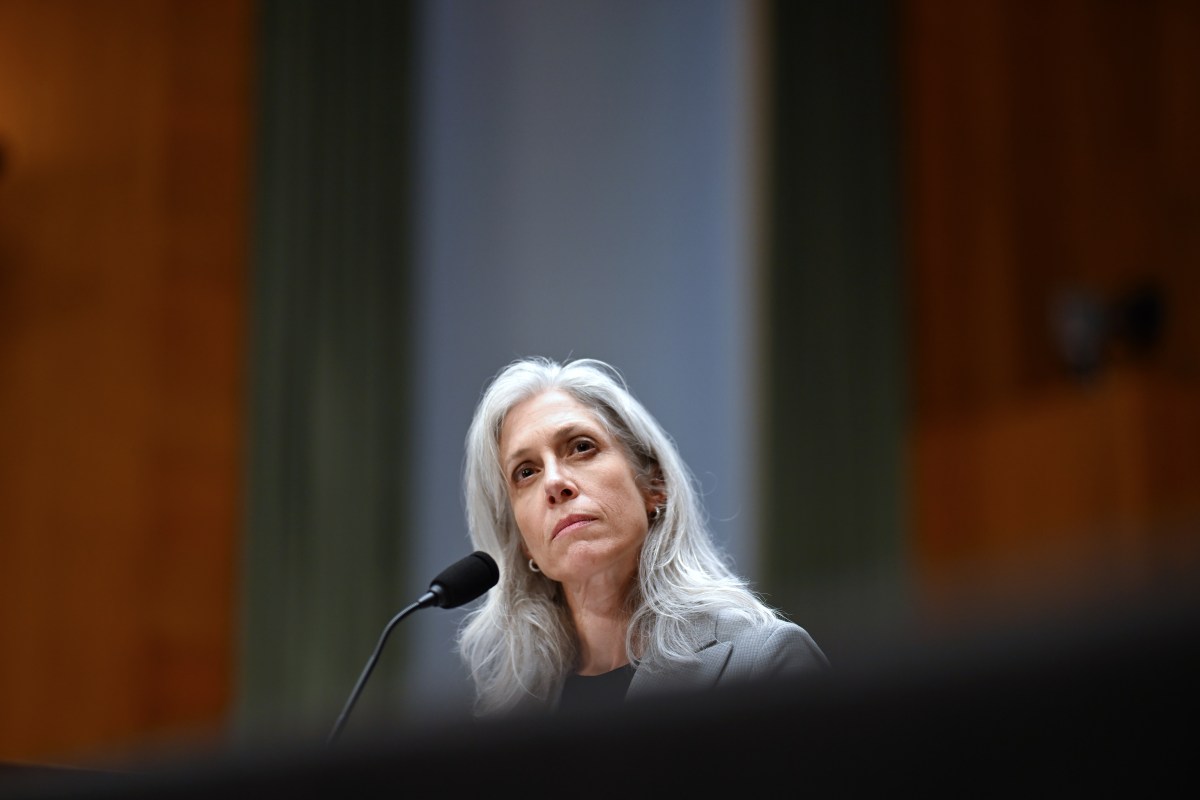
No one loves Monday morning meetings, but when Susan Monarez—the director of the Centers for Disease Control and Prevention (CDC)—rolled into the office on August 25 for an appointment with Health and Human Services Secretary Robert F. Kennedy Jr. and his principal deputy chief of staff, Stefanie Spear, she likely did not expect it to lead to her firing.
It had been less than a month since the Senate voted to officially confirm her to the position, where she had served in an acting capacity since three days into President Donald Trump’s second term. But, as Politico reported—citing an unnamed Health and Human Services (HHS) Department official—Kennedy and Spear reportedly told Monarez in the meeting that her leadership had displayed incompetence and subsequently asked her to resign. When Monarez refused, Kennedy and Spear offered new terms: Fire certain senior CDC leadership officials and accept updated vaccine recommendations from the agency’s vaccine panel, the Advisory Committee on Immunization Practices (ACIP).
In June, Kennedy had fired all 17 board members and replaced them with eight of his own appointees, one of whom withdrew from the panel later that month “during the financial holdings review required of members before they can start work on the committee,” according to HHS spokesman Andrew Nixon. As we previously reported in TMD on June 12:
Kennedy has argued that the committee had long suffered from conflicts of interest and a lack of transparency. But current and former members have refuted that characterization, pointing out that prospective members must publicly disclose any potential conflicts and, if appointed, abstain from voting on recommendations for vaccines whose manufacturers they are affiliated with.
Monarez was unwilling to accept those terms. Two days later, the HHS announced on X that Monarez was “no longer director” of the CDC.
However, her lawyers—Mark Zaid and Abbe Lowell—disagreed. In their words, she was asked to resign because she “refused to rubber-stamp unscientific, reckless directives and fire dedicated health experts,” and she did not resign. They further argued that only the president can terminate a sitting CDC director, not Kennedy or any other HHS official. White House personnel notified Monarez in a phone call on Wednesday that she, indeed, had been fired by the president, but her legal team still disagrees, with Zaid noting on social media that being notified by White House staff is not the same as being informed by the president himself.
At a press conference the following day, White House press secretary Karoline Leavitt publicly addressed the matter, stating that Monarez “said she would [resign], and then she said she wouldn’t, so the president fired her, which he has every right to do.” Trump has yet to comment on Monarez’s firing but he alluded to the turmoil in a social media post on Monday that speculated on the effectiveness of COVID-19 vaccines: “With [the] CDC being ripped apart over this question, I want the answer, and I want it NOW.”
Monarez is not the only top official leaving the nation’s public health agency. Three senior officials resigned on Wednesday in protest of her ouster: CDC chief science and medical officer Debra Houry, director of the National Center for Immunization and Respiratory Diseases Demetre Daskalakis, and director of the National Center for Emerging and Zoonotic Infectious Diseases Dan Jernigan. (Jennifer Layden—director of the Office of Public Health Data, Surveillance, and Technology—also left the agency on Thursday, though it’s unclear whether her departure was connected to that of Monarez, and whether Layden was fired or resigned.)
Until this point, CDC leadership had not found Kennedy, who took office aiming to shake up an agency that he said had lost the nation’s trust, impossible to work with. As Daskalakis told the New York Times on Thursday, the secretary and CDC officials were largely aligned in “managing the measles outbreak in Texas” by educating local communities on possible warning signs of a measles infection and emphasizing this rather than just inoculation. “We shifted the message from being like an only-vaccine drumbeat, to including vaccine prominently,” he said, “but also talking about what the signs were, where you should get in the car and drive to [the hospital] because it’s an hour away.”
However, when Daskalakis made repeated attempts to open up dialogue between researchers and Kennedy, he found his efforts consistently rebuffed. “We offered to do briefings when he first started, I think some people were able to brief some lower-level staff, but not staff that were Secretary Kennedy’s staff,” he said Friday. “So, no one from my center has ever briefed the secretary”
Tension within federal departments has been present in previous administrations, but this situation is particularly “unsettling,” Dr. Joshua Sharfstein, a public health professor at Johns Hopkins’ Bloomberg School of Public Health and a former Food and Drug Administration (FDA) principal deputy commissioner, told TMD. “I used to work at [the] FDA, so I had a little bit of tension on different issues [with other federal regulatory agencies],” he said. “But the idea that the CDC director isn’t going to be able to look at the evidence and actually make a decision based on the evidence, that’s unsettling.”
Due to its importance for public health, the CDC has been largely insulated from sweeping changes or reforms introduced by new presidential administrations. But under the Trump administration, more than 2,000 CDC employees have been laid off, and other long-serving officials had resigned in frustration.
As Lawrence O. Gostin, distinguished university professor at Georgetown Law and faculty director of the university’s O’Neill Institute for National and Global Health Law, told TMD, “I've worked with CDC directors appointed by Republicans and Democrats—always thought that the CDC was a shining star of science and public health in the federal government.” He continued, “All of that is unraveling right before our eyes. The CDC is weakened beyond recognition.”
Gostin worked closely with the Biden administration on issues involving the CDC and public health, and he explained that while the White House “sometimes sought to interfere with CDC,” its involvement in the federal agency pales in comparison to the current administration. “Never, ever had they demanded blind loyalty or fealty to the White House, or to the president, or to the [HHS] secretary,” Gostin said. “The disputes have always been: Did you really get the science right? Did you really explain this properly to the American public?”
The ACIP is scheduled to meet on September 18, and its recommendations for COVID and other vaccines could be an early indicator of changes to come at the CDC; particularly if the panel stops recommending a wide swath of vaccines. But delaying the meeting—as GOP Sen. Bill Cassidy of Louisiana proposed on Thursday—also comes with consequences. As Wendy Parmet, a law professor at Northeastern University and director of the school’s Center for Health Policy and Law, told TMD, rescheduling the ACIP meeting “actually makes things worse in terms of accessibility for vaccines right now." On Thursday, CVS Pharmacy announced the COVID-19 vaccine would be unavailable in 16 states with laws prohibiting pharmacies from doling out vaccines that have not received ACIP’s recommendation for approval. In 13 of those states, people can still obtain the vaccine with a doctor’s prescription, but receiving a vaccine at a doctor’s office is usually more expensive than going to a pharmacy.
Kennedy named Monarez’s temporary replacement on Friday, choosing deputy HHS secretary Jim O’Neill to serve as acting CDC director until Trump submits a new nominee for Senate confirmation. While Monarez was the first CDC director in more than 50 years not to hold a medical degree—she received a doctorate degree in microbiology and immunology—O’Neill has a significantly less traditional résumé, having received both his bachelor’s and master's degrees in humanities. He served as principal associate deputy secretary at HHS under President George W. Bush, and in the years since, has worked closely with billionaire tech entrepreneur and right-wing donor Peter Thiel, serving as managing director of his hedge fund, Clarium Capital. O’Neill was also CEO of SENS Research Foundation: a Thiel-funded nonprofit that researches experimental anti-aging medication.
“I’m very strongly pro-vaccine,” O’Neill said at his Senate confirmation hearing for deputy HHS secretary in May, adding, “I support the CDC vaccine schedule.”
During a Fox News interview on Thursday, Kennedy said the CDC was a “troubled” body that he would be “fixing,” and added “it may be that some people should not be working there anymore.” However, as Gostin emphasized, the decision to fire Monarez was motivated by considerations far outside the scientific field. “He fired [Monarez] because she was doing her job,” he said. “He fired her because she wouldn't comply with a blind political orthodoxy, and that's why she had to leave.”
Today’s Must-Read
When the news broke last Tuesday that President Donald Trump had ordered the firing of a member of the Federal Reserve’s Board of Governors, one could be forgiven for thinking it was Jerome Powell. Trump has spent years attacking the Fed chair and repeatedly threatened to can him. But Powell’s job is safe, for now. Instead, the president fired Lisa Cook, one of the seven-person board’s other members, citing allegations that she had committed mortgage fraud. Cook, however, refused to go and filed a lawsuit Thursday asking the courts to affirm her status as a Fed governor. Before Trump, no president had ever removed a sitting Fed board member in the 111-year history of the central bank, and the attempted firing is just the latest in a string of attacks that the administration has launched against the Fed’s independence.
Toeing the Company Line
Divide and Be Conquered
Our politics is fragmented for the same reason as the entertainment marketplace.
The Gaineses, ‘Private Religion,’ and the Whole-Life Demands of Faith
There is no such thing as a ‘religious autonomous zone.’
Word Magic
On body positivity, birthing people, and hopes for a saner left-wing lexicon.
How Democrats Are Confronting Divisions Over Cultural Issues
Leftists and centrists largely agree the party needs to improve its messaging on the economy.
The GOP’s Recess Assignment: Sell That Bill
Congressional Republicans and Cabinet members accentuate the positives in their big, beautiful bill.
Investment, Not Regulation, Raises Wages
To understand why some jobs pay more than others, look no further than supply and demand.
Elizabeth Anscombe and the Bomb
How a Catholic British thinker made sense of war between extremes.
U.S. National Security Is Being Attacked From Within
The administration’s personnel purges will do lasting harm to our intelligence capabilities.
The Idea of Order at the Iowa State Fair
On big pigs, blue ribbons, and the purpose of the state.
The Bygone Eras Tour
On Oasis, past its prime.
When Books Are Called ‘Dangerous’
Examining illiberal fury in the publishing world.
The Coming GOP Civil War | Solo
‘All vice presidents eat enormous bowls of feces.’
Worth Your Time
Silicon Valley is spending almost unfathomable sums on AI—including supposed billion-dollar pay packages for researchers—and all justified on the grounds that artificial general intelligence (AGI) is going to be of unique generational value at some point in the future. But, as Josh Chin and Raffaele Huang write in the Wall Street Journal, “China Has a Different Vision for AI”—one focused on practical applications, here and now—and in their view, “It Might Be Smarter.” As they write: “If AGI remains a distant dream, as more people in Silicon Valley now believe, China will be in position to steal a march on its global rival in wringing the most out of AI in its current form, and spread its applications worldwide. Already in China, domestic AI models similar to the one that powers ChatGPT are being used, with state approval, to grade high-school entrance exams, improve weather forecasts, dispatch police and advise farmers on crop rotation, say state media and government reports. Tsinghua University, China’s equivalent of the Massachusetts Institute of Technology, is rolling out an AI-powered hospital, where human doctors will be assisted by virtual colleagues armed with the latest data on diseases. Intelligent robots are being deployed to run automotive ‘dark factories’ and inspect textiles for flaws while still on the loom.”
Presented Without Comment
Axios: Blocking Tariffs Would Be “End of the United States,” Top Trump Adviser Says
Also Presented Without Comment
Fox Business: Bessent Warns ‘All Options Are on the Table’ for Russia Sanctions
“President Putin, since the historic meeting in Anchorage, since the phone call, when the European leaders and President Zelensky were at the White House the following Monday, has done the opposite of following through on what he indicated he wanted to do. As a matter of fact, he has, in a despicable, despicable manner, increased the bombing campaign."
Bessent added: "So I think with President Trump, all options are on the table, and I think we'll be examining those very closely this week.”
Let Us Know
Have any thoughts or questions about today’s newsletter? Drop us a note in the comments!
Correction, September 2, 2025: This newsletter has been updated to correct the spelling of Rive Droite.

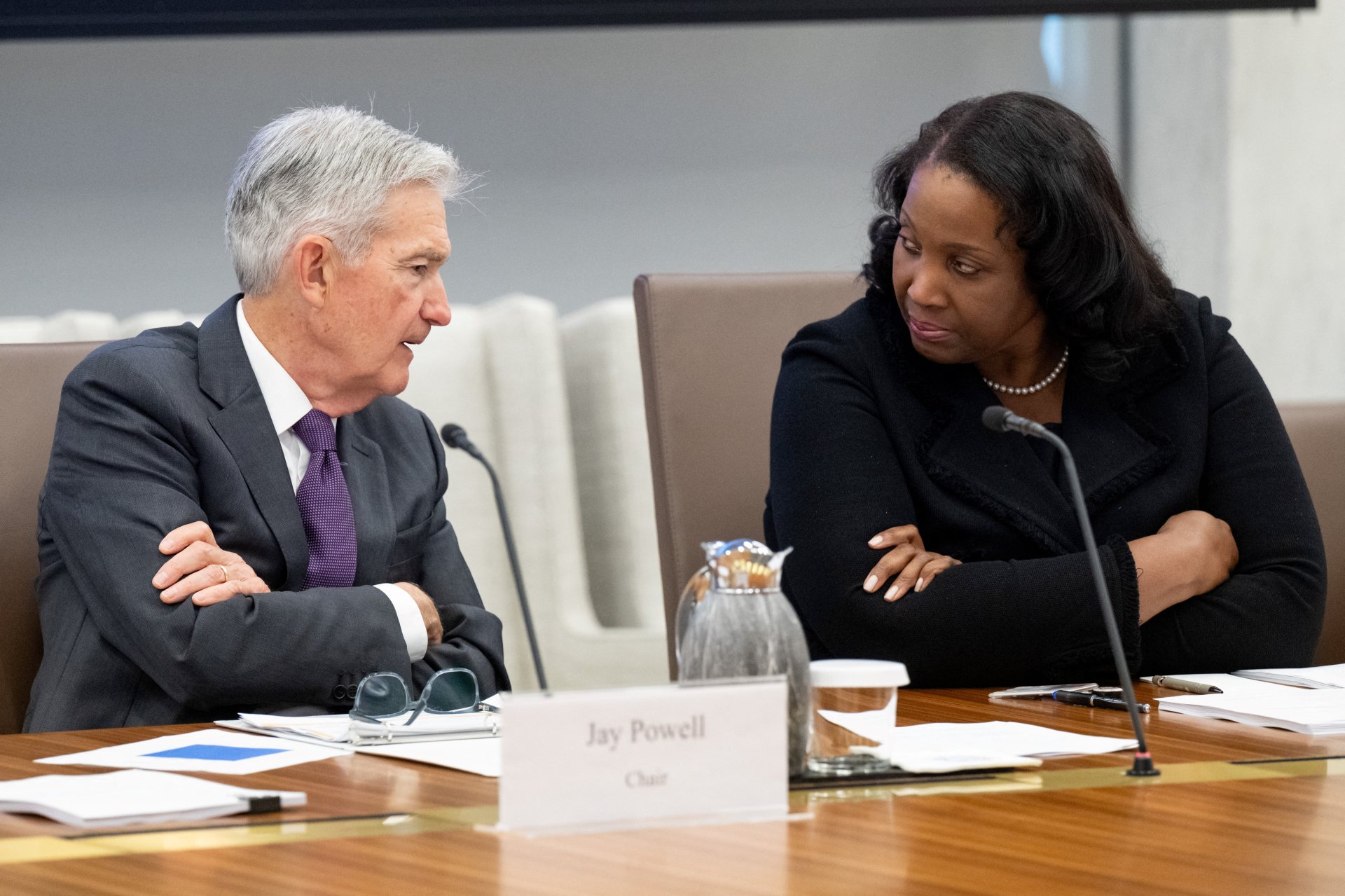

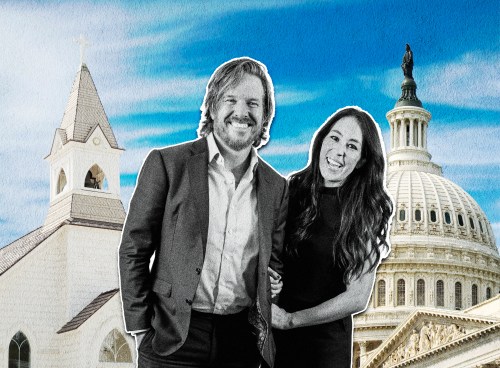
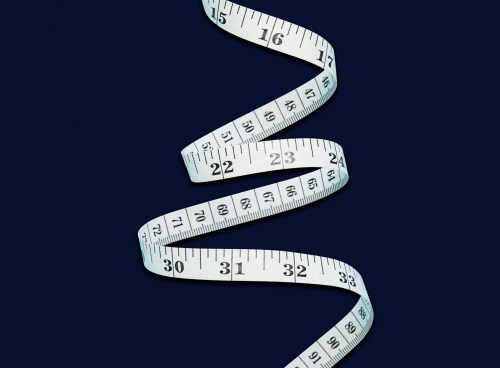
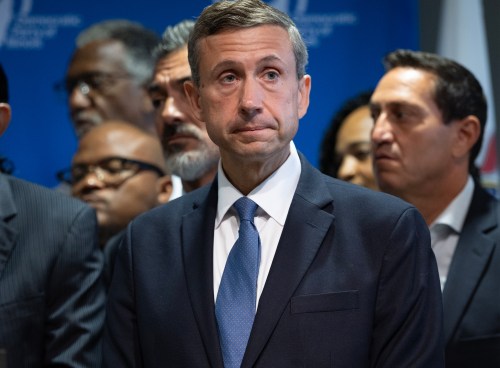
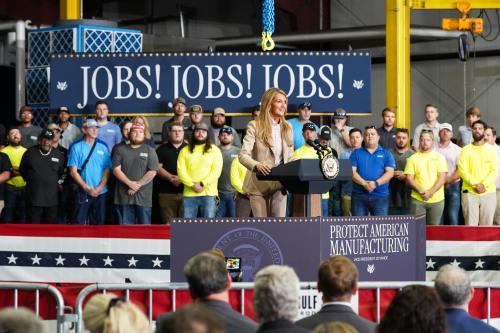


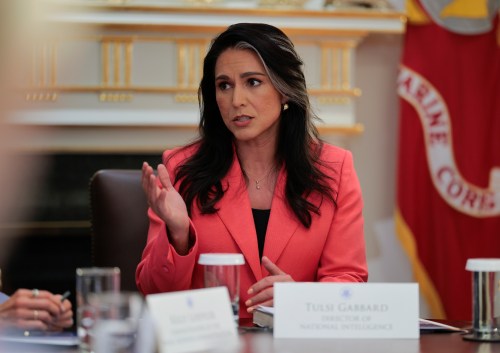



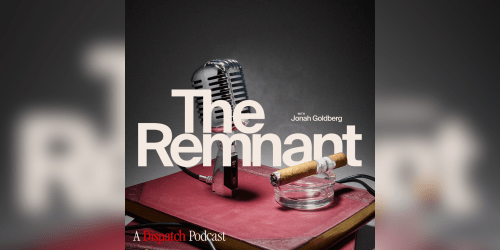


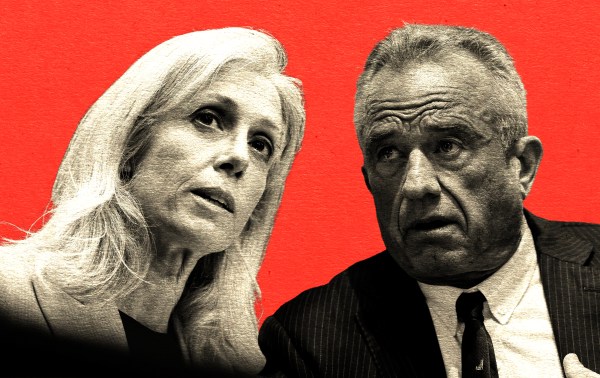
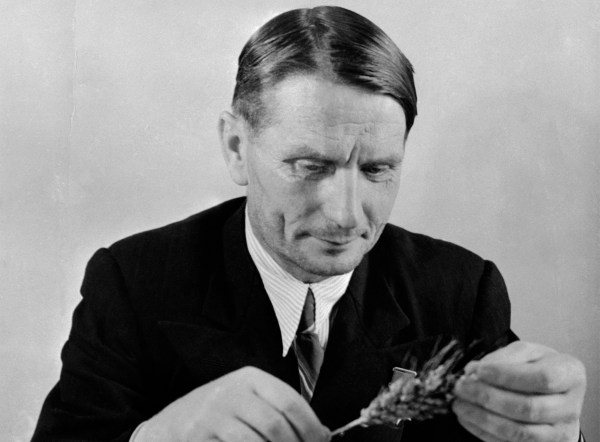
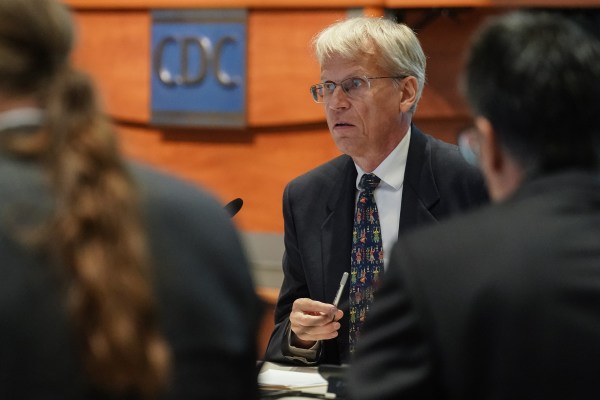
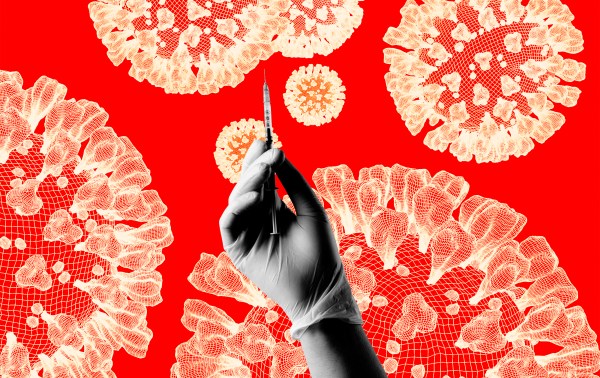
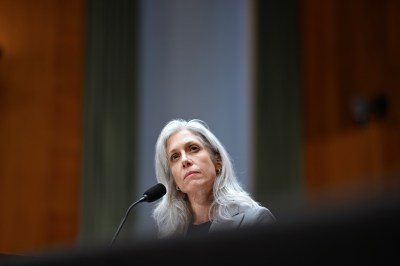
Please note that we at The Dispatch hold ourselves, our work, and our commenters to a higher standard than other places on the internet. We welcome comments that foster genuine debate or discussion—including comments critical of us or our work—but responses that include ad hominem attacks on fellow Dispatch members or are intended to stoke fear and anger may be moderated.
With your membership, you only have the ability to comment on The Morning Dispatch articles. Consider upgrading to join the conversation everywhere.